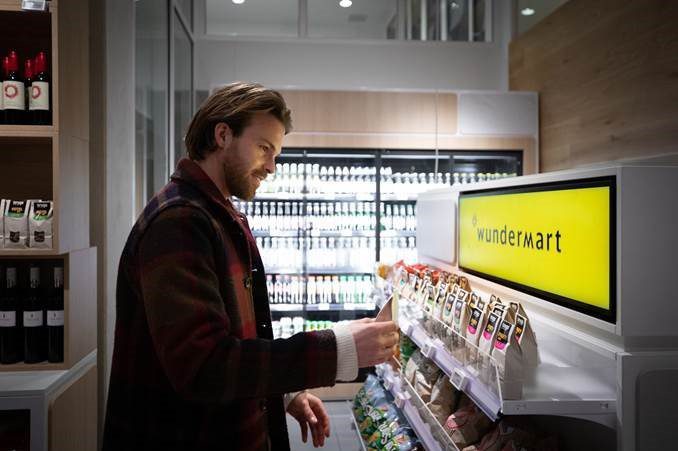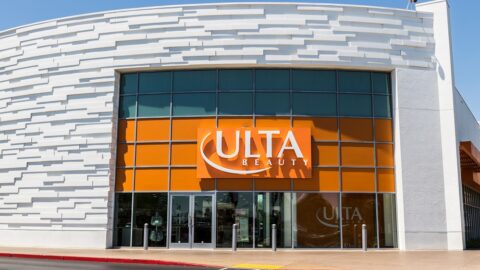Autonomous convenience store retailer Wundermart is expanding its operations, with plans to open more than 10,000 checkout-free stores in a partnership with contactless checkout company AiFi. Wundermart customers will be able to enter a location, make a purchase and exit without ever needing to scan individual items, while the store will collect the data needed to make the experience — and even the store’s operations — truly autonomous.
Wundermart’s current operations, which are focused on providing shopping opportunities at hotels and offices, let customers grab their desired items, scan each item and pay for them at a self-checkout kiosk. The company’s software also tracks store performance to help these locations, which often have little backroom space, to efficiently manage inventory and ordering.
The addition of AiFi’s computer vision technology will let shoppers simply scan their payment method of choice at the kiosk, either before or after picking up their purchases, with no further interaction required. Interest in this friction-reducing technology was accelerated by COVID-19, and Wundermart expects the autonomous store models’ ability to let retailers create hyperlocal assortments will carry it into a post-pandemic the future.
“We believe physical retail will stay in the hearts of consumers, but to make it future-proof it should become smaller and more efficient, with select offerings at locations close to where target groups are,” said Laurens de Kleine, Co-Founder of Wundermart in an interview with Retail TouchPoints. “You should be capable of easily opening up autonomous shops, and it needs to be cost-effective.”
Computer Vision Can Drive a Better Product Mix
Smaller stores have less space to work with, which means smaller products selections where every SKU counts. This makes data collection and processing a particularly important piece of the operation, particularly when targeting a specific neighborhood or business.
Wundermart tackles this challenge by starting with a standard assortment, which is initially modified based on the demographics around the store in question. From there, the location itself collects data, including what sells well, what margins look like and how customers react to certain pricing schemes in order to generate a successful assortment.
“After working for six weeks, we get enough data to see what works based on the standard assortment,” said de Kleine. “From there we start rolling and we get the data about what sells and what doesn’t. Then you’ve got your price elasticity, that’s also quite an important thing — we need to measure margins. It’s very data-driven.”
The addition of AiFi’s camera-based technology is expected to further enhance these capabilities. The use of computer vision lets the stores track information such as which physical areas of the store are driving the most purchases. AiFi’s technology does not use facial recognition or collect biometric data, which will help Wundermart maintain high levels of customer privacy and security as it collects information.
Autonomous Stores Reduce Labor Costs Without Alienating Customers
Another benefit of this data collection is that Wundermart and AiFi’s autonomous stores can handle almost all day-to-day tasks without human intervention, including automatic replenishment. Currently, human intervention is only needed for checking and refilling shelves, and even that process is largely guided by the software.
“We actually take what we call the shopkeeper by the hand by telling him, step by step, what to do,” said de Kleine. “We have 3D information about the shop, so we say, ‘Please count some products here, or check the date on the products here because, based on the data, there could be two or three past their expiration date.’ It’s all interconnected so that we can instruct him on how to do his work.”
While the Wundermart stores feature many types of automation, customers who are more comfortable with conventional shopping methods can still pay with credit cards in addition to a store app. The ultimate goal of the stores is to welcome a “great spectrum of user experiences that can exist in our shop,” according to Steve Gu, Co-Founder and CEO of AiFi. The stores aim to become a natural evolution of the retail experience by offering a comfortable trip no matter how people want to shop.
“The shops will come to the consumers,” said de Kleine. “Of course you’ll get home delivery and you’ll get all these related things, but they won’t dominate the market in the end. I think shops will stay and thrive and we’ll ensure that they come right to the consumers. That’s the trend we’re following with our combined power.”













